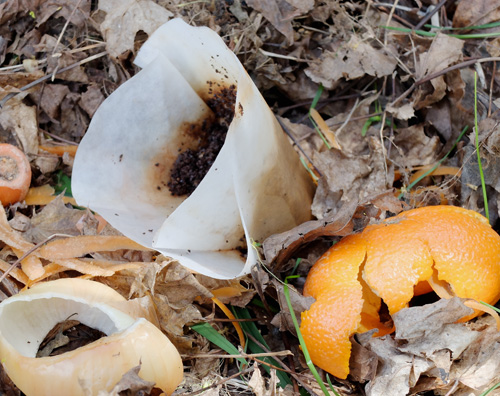The organic coffee lifestyle – a sustainable approach to enjoying coffee.

You don’t have to be a “green” to enjoy an organic coffee lifestyle. You just have to care a little about your health, the environment and the lives of the small farmers who grow the beans.
Best of all, going from regular coffee beans to organic or fair trade coffee beans isn’t an extreme transition - like switching from hamburgers to tofu.
You still get the same taste, and in many if not most cases, your organic or fairly traded coffee will taste even better.
Starting with organic coffee...
Step one on the road to the organic coffee lifestyle is to buy organic beans. When you do that you know that herbicides, pesticides and artificial fertilizers were not used on the farm where your coffee was grown.
The additional health benefits to you and your family may be an important consideration for you. But beyond that, by buying organic coffee you are freeing small farmers in developing countries from dousing their land with toxic chemicals.
Next step...organic fair trade coffee...
When you buy organic coffee that is also fair trade certified, you are making a huge contribution to the lives of many coffee farmers. When you buy fair trade, you guarantee these farmers a living wage, and also support them in developing sustainable farming practices for their farms and communities.
Is there a Green way to grind and brew your coffee beans?
When it comes to grinding your beans, simply choose a manual coffee mill rather than an electrical model. Zero power consumption.
As for coffee makers, some are more environmentally friendly than other.
Perhaps the least Green coffee makers are the new K-cup single-serve coffee makers and similar systems. In addition to the environmental costs associated with manufacturing these complex chunks of plastic and metal, there is also the issue of the disposal of millions of empty K-cups, cups and capsules. Where do their go? Into our landfills and incinerators.
At the other end of the spectrum, you have a beautifully simple brewer like the press pot. It’s just a glass jug with vertical sides, and no moving parts other than when you push the plunger down by hand. No electricity required.
And once you have made your press pot coffee, there are no plastic cups or even paper filters to throw away. Just the used, wet coffee grinds. A brewer like the Chemex is just as good because, as you can see from the photo above, you can put both the filter and the grinds in the compost
This is where the organic cycle ends…with coffee growing from the soil and being returned to the soil.
The organic coffee lifestyle completes a full circle...
You buy your whole coffee beans from farmers who practice sustainable, organic farming practices...you choose fair trade certified beans to ensure those farmers receive a living wage...you grind and brew your coffee by hand, with no power consumed...and then return the used coffee grinds back to the soil through composting.
It’s rare you can follow a cycle like that...from the soil and back to the soil...without causing harm or pollution in between.
Further reading:
Find out more about organic fair trade coffee...
More about the gourmet coffee lifestyle page...
About the author: Nick Usborne, aka Coffee Detective, is a writer and long-time coffee enthusiast. Read more…
Before you go, sign up to receive the Coffee Detective Newsletter...
Sign up for occasional newsletters about the best coffees and brewing equipment. Plus special updates from the Coffee Detective Coffee Store…




